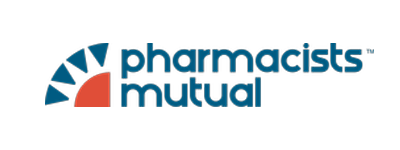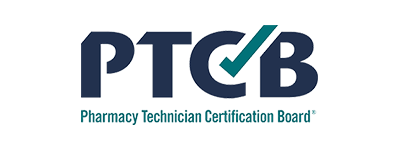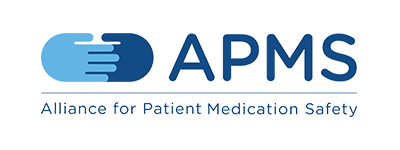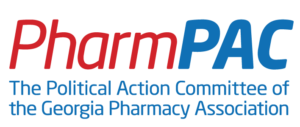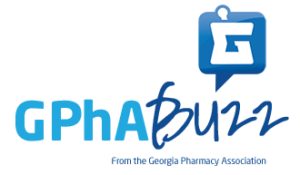Legislative Update: Final reckoning 2018
2018 Legislative Session Wrap-up
Day 40 of Georgia’s 2018 legislative session, sine die, meant the end of the line for many healthcare related bills while others went on to the Governor’s desk for consideration. The Governor has 40 days to consider, sign or veto, those bills passed by the General Assembly. If he does neither, the bills become law on their effective date (July 1 unless otherwise specified).
For pharmacists, in what was supposed to be a quiet year, Day 40 marked the end of a remarkable legislative session, and a truly historic biennium (2017 and 2018 legislative sessions collectively).
Indeed, while 2017 saw the passage of the pharmacy patient fair practices act which has served as a model across the nation and the right to correct clerical errors made in connection with Medicaid claims, 2018 saw the passage of legislation significantly expanding in point of care testing and a budget pass with an eye toward bringing transparency to PBM practices in connection with state health benefit plan and managed care prescription drug claims.
These bills, and others which passed are set forth in more detail below. However, while not exhaustive, several bills which failed to achieve passage are also set forth below. It is worth taking a read as it helps put into perspective, just how hard it can be to pass legislation and how effective pharmacy can be when they engage and lead.
And so, as I write this, my final legislative report for GPhA, I am grateful to have had the opportunity and privilege of advocating on your behalf. Thank you, Georgia pharmacists.
SB 422
This bill, introduced by Senator Unterman and carried by Representative Cooper in the House SB 422 updates the law to allow pharmacists to perform all tests approved by the FDA for home use to screen for disease risk factors and drug use. Pharmacists can currently perform capillary blood tests (finger prick tests) to screen for disease but are restricted from performing simpler less invasive tests such as saliva testing.
This update will also facilitate improved care as pharmacists can assist with patient education and will make reasonable efforts to notify patients’ physicians of test results. Finally, this bill will allow pharmacist testing to evolve with technology as it does not limit pharmacists to any particular test method, but rather, is tied to tests approved for home use, regardless of testing method.
This bill is expected to take effect beginning July 1, 2018.
HB 684 – Budget
One of the recommendations made by the House Rural Development Council was to seek transparency in connection with PBM models. In that regard, the House looked to make significant steps towards the goal of transparency by including a directive to DCH in connection with state health benefit plan contracts and managed care contracts in connection with pharmacy claims. While opposition was fierce and some changes were made — the final budget includes first of its kind language requiring the reporting to DCH of pharmacy claim information.
More specifically, plan sponsors will be required to annually report all pharmacy claims, itemization of all administrative fees, rebates, or processing charges associated with each claim. The Department will then be tasked with providing a report utilizing aggregated data to the chairs of the House and Senate Appropriation Committees.
While there are some ambiguities, these reporting requirements are significant and will be the first-time plan sponsors in Georgia have been required to report on all pharmacy claims. Once again, Georgia finds itself ahead of the curve when it comes to shining a light on PBM practices.
Finally, while this language is incredibly significant, we believe this is just the first step in bringing transparency to PBM practices and GPhA looks forward to working with DCH and House leadership to ensure that the proper information is reported, information is put in the appropriate context, and further steps are taken to shine a light on PBM practices.
Other legislation that passed
HB 65
This bill creates the Joint Study Commission on low THC medical oil access for the purpose of studying in-state access of medical cannabis and lot THC oil. The bill also adds to the list of conditions eligible to possess low THC oil in Georgia.
HB 769
Sponsored by Representative Jasperse, in connection with implementing certain recommendations of the House Rural Development Committee relating to rural healthcare this bill does several things in connection with rural healthcare including the establishment of micro-hospitals (institution in a rural county which has at least two and not more than seven beds and which provides services seven days per week and 24 hours).
With regard to pharmacy, this bill updates and improves the ability of hospital pharmacies to utilize remote order entry. It allows remote order entry when (1) a licensed pharmacist is not physically present in the hospital, the hospital pharmacy is closed, and a licensed pharmacist will be physically present in the hospital pharmacy within 24 hours or the next business day; or (2) when there is at least one licensed pharmacist physically present in the hospital (does not have to be in the hospital pharmacy). Additionally, pharmacists performing remote order entry no longer have to be located within the state so long as they are licensed in the state and the pharmacy with which they are employed or contracted with hold either a license in this state or a nonresident pharmacy permit in this state.
This bill was not without controversy but GPhA worked with stake holders and the bill sponsor to ensure that the Georgia Board of Pharmacy has appropriate oversight of these activities. GPhA thanks those stake holders as well as Representative Jasperse and believes this bill brings Georgia into line with the rest of the nation and will allow smaller rural hospitals and their patients to access critical pharmacy care services.
HB 818
Introduced by Representative Lee Hawkins, this bill seeks to bring transparency to the insurance reimbursement process and to give healthcare providers (including pharmacists) the ability to choose to be reimbursed via check as opposed to electronic credit cards.
HB 830
Introduced by Representative Harden, this is the annual drug update bill which updates the Georgia code with regard to controlled substances and dangerous drugs.
SB 321
Senator Blake Tillery’s bill revises penalties for Medicaid false claims to bring penalties in line with federal penalties for civil False Claims Act violations.
SB 357
Senator Burke’s bill creates the Healthcare Coordination and Innovation Council in order to improve coordination of the state’s healthcare system. The bill contemplates 18 members, with several by appointment. Significantly, the bill requires the Council always includes a pharmacist. While the initial bill did not specifically contemplate a pharmacist, GPhA worked with the legislators to ensure that pharmacy have a voice on this Council.
SB 407
SB 407 was amended to include revisions to the PDMP which were contemplated in HB 782. The bill makes certain narrow revisions to Georgia’s PDMP as recommended by the Department of Public Health, which administers the program. This looks to ease requirements in connection with prescriber and dispenser delegation (delegates no longer have to licenses or registrations) while at the same time allowing DPH to share PDMP info with other state PDMPs as well as prescriber or healthcare facility electronic medical record systems.
Resolutions
There were several resolutions that passed, each creating a study committee.
HR 1160
Introduced by Representative Brooks, this resolution creates a House study committee on risks associated with Kratom.
HR 1194
Brought by Representative Knight, this resolution created a study committee on the issue of retrospective emergency room policies instituted by insurers.
SR 489
Introduced by Senator Ligon, this resolution creates a study committee on prescribing patterns for antidepressants and other psychotropic medications. The Resolution contemplates a pharmacist on the Committee.
SR 832
Senator Mullis introduced this resolution which creates a Senate study committee on the risks associated with Kratom.
Bills GPhA monitored that crossed over but failed to pass
- HB 519 (step therapy override)
- HB 927 (APRN bill increasing supervising physician to APRN ration)
- HB 678 (surprise billing)
- SB 184 (creation of Integrated Health Data Project)
- SB 325 (Interstate Medical Licensure Compact)
- SB 334 (remove Board of Nursing from Sec. of State to DCH)
- SB 352 (creating Commission on Substance Abuse and implementing new anti-kickback prohibitions)
- SB 359 (surprise billing for emergency medical providers)
- Bills GPhA monitored which failed to crossover and pass
- HB 716 (Georgia Pre-Arrest Diversion for Drug and Mental Health Treatment Act)
- HB 747 (unrestricted access to medications for hemophilia patients)
- HB 755 (pre-exposure prophylaxis drug assistance to at risk persons pilot program)
- HB 868 (low THC OIL eligible condition expansion)
- HB 872 (insurer selection standards for provider network participation)
- HB 873 (PBM prior authorization regulation)
- HB 875 (requiring payors to reimburse providers for services reimbursable under federal/state plans)
- HB 895 (prohibiting sale to those under 18 and requiring ID checks for most OTC cough syrups)
- HB 943 (requiring reimbursement for less addictive opioids)
- SB 300 (healthcare premium assistance)
- SB 322 (imposing certain requirements in connection with sale of personal assistive mobility devices)
- SB 344 (creation of Georgia retail marijuana code)
- SB 346 (repeal of low THC registry)
- SB 471 (mandatory e-prescriptions)

